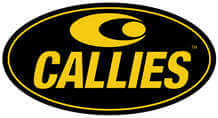
MS Access As A Dev Tool
Access continues to be a highly efficient tool for business database development.
The Best Microsoft Access Database Solutions owner, consultant, and principal programmer is Alison Balter - a recognized expert Microsoft Access consultant. Alison is the author of 15 Microsoft Access training books and 200+ training videos. She is a frequent guest speaker at MS Access conferences and has developed hundreds of applications for businesses of all types.
We know your business data is important; we listen to your concerns, ask questions, and gather information from all stake holders. We discuss your needs and requirements for your database. We find out what you want, why you need various features so we can obtain as much information as possible. Once we have the information we need, we work with you to design the proper database architecture, plus the dashboards, the questions (queries), forms, and reports you need for an excellent database system.

We also create websites designed for speed to display your data accurately, using ASP.NET technology. Fast, secure, and robust, our ASP.NET web sites and web applications give you true business tool for finding and displaying information dynamically on the web.






Access continues to be a highly efficient tool for business database development.

How to create a Microsoft Access application with some unique tips and tricks.

Your Access developer near me has some great info for you about using Access efficiently.
Call MS Access Solutions at (323) 285-0939 For Complimentary Consultation
Defining Your Own Constants
As mentioned previously, you declare a symbolic constant by using the Const keyword. You can declare a constant in a subroutine or function, or in the General section of a Form, Report, or Class module. You can strong-type constants, meaning that you can declare them with a data type. There are several naming conventions for constants. One of them is to use a suitable scoping prefix, the letter c to indicate that you're working with a constant rather than a variable, and then the appropriate tag for the data type. The declaration and use of a Private constant in the previous tax-rate example would look like this: Private Const mccurTaxRate As Currency = .0877Scoping Symbolic Constants
Just as regular variables have scope, user-defined constants have scope. In the preceding example, you created a Private constant. The following statement, when placed in a module's Declarations section, creates a Public constant: Public Const GTAXRATE As Currency = 0.0877Because this constant is declared as Public, it can be accessed from any subroutine or function (including event routines) in your entire application. To better understand the benefits of a Public constant, suppose that you have many functions and subroutines, all referencing the constant GTAXRATE. Imagine what would happen if the tax rate were to change. If you hadn't used a constant, you would need to search your entire application, replacing the old tax rate with the new tax rate. However, because you declared your Public constant in one place, you can easily go in and modify the one line of code where you declared this constant.
This material orginally appeared in Alison Balter's book Mastering Microsoft Office Access 2007 Development. Reprinted here by author's permission.
When you need a Microsoft Access programmer for your Anaheim CA business, call MS Access Solutions at (323) 285-0939. We have over 25 years experience in Microsoft Access programmer solutions. We create Access database applications for all sectors, consisting of hospitals, government agencies, the U.S. military, universities, agriculture, workers services, and insurance provider. We can take care of the most advanced as well as complicated Access and also SQL Server database programming for your business as well as smaller projects, like fixing damaged Access database forms, MS Access reports, Access macros, and VBA code.
Access programmer cities we serve: Access Programmers Albany New York

